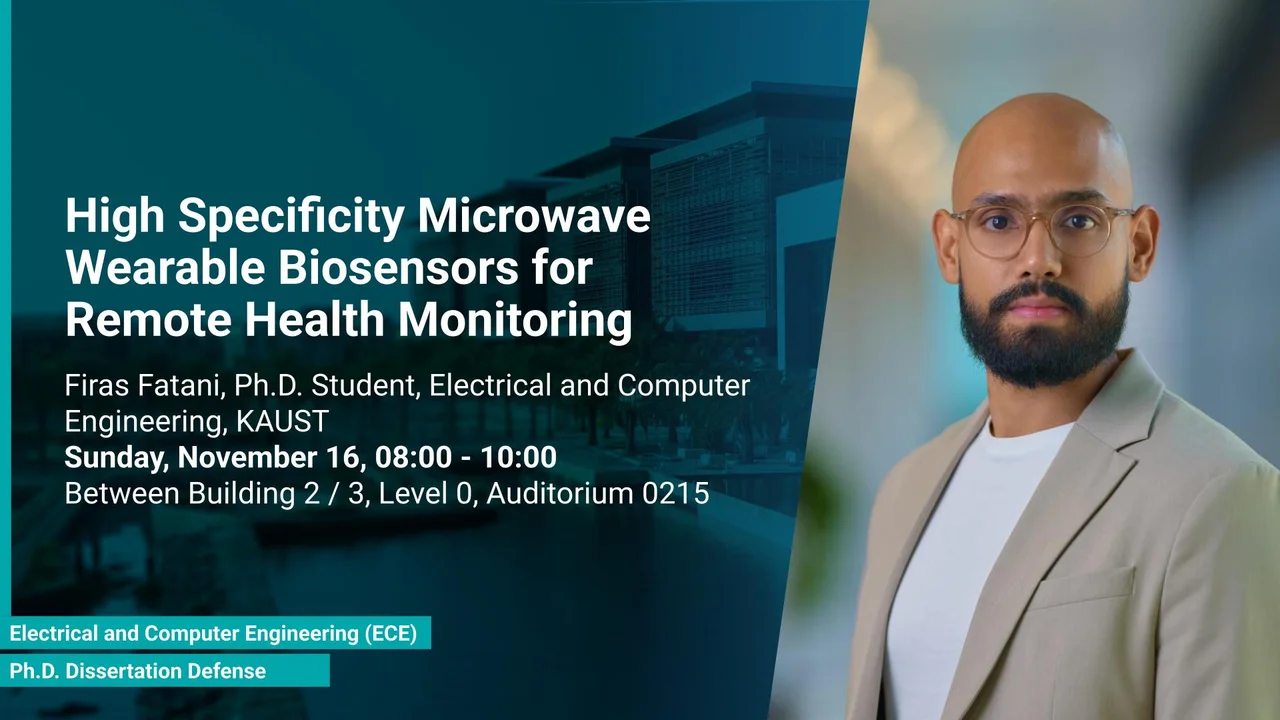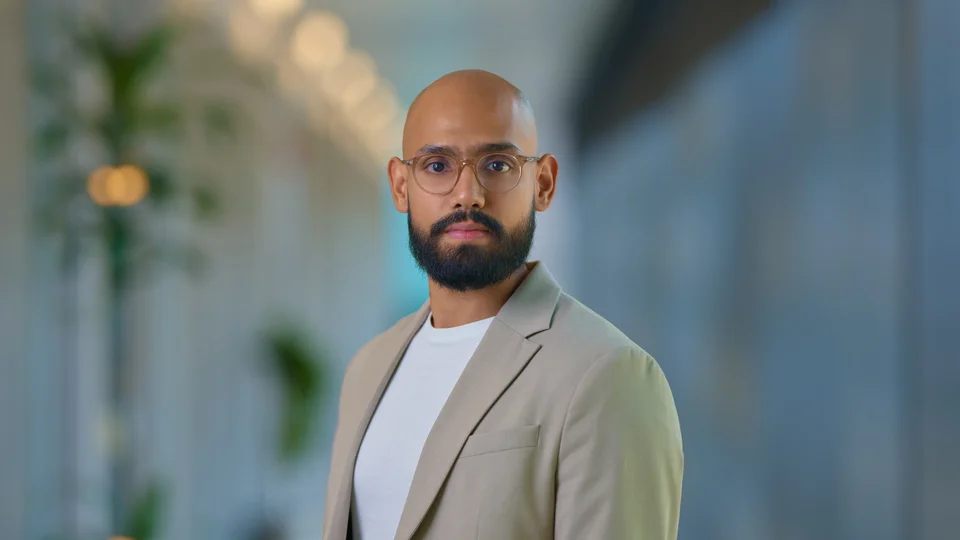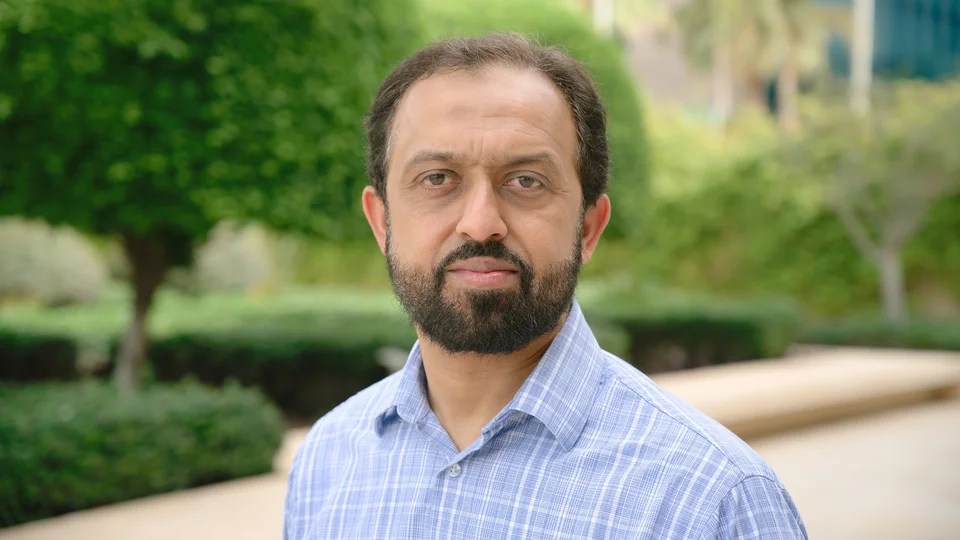
High Specificity Microwave Wearable Biosensors for Remote Health Monitoring
B2/3 L0 R0215
This dissertation investigates an alternative route based on electromagnetic (EM) sensing to realize passive, label-free, and cost-effective wearable biosensors, addressing key limitations of existing technologies.
Overview
The advancement of wearable biosensing technologies is crucial for enabling continuous and remote health monitoring. Conventional approaches are dominated by electrochemical sensors with embedded electronics and batteries, which increase system complexity, limit wearability, and raise costs. This dissertation investigates an alternative route based on electromagnetic (EM) sensing to realize passive, label-free, and cost-effective wearable biosensors, addressing key limitations of existing technologies.
The work begins by tackling the lack of stable and sensitive printed skin temperature sensors. A thermally responsive device based on doped vanadium dioxide (VO₂) was formulated into a printable ink and integrated with a flexible antenna-on-package (AoP) in a bracelet form, demonstrating both material-level innovation and wireless wearability. Building on this foundation, the second contribution demonstrates a sweat lactate microwave resonator sensor that tackles one of the most critical limitations in microwave biosensing: achieving biochemical specificity via enzymatic reaction–driven dielectric changes. The sensor exhibited high sensitivity and selectivity against common interferents, with \textit{in-vitro} validation from adult volunteers during exercise.
The dissertation then extends microwave biosensing to overcome two additional gaps in microwave sensors: single-analyte detection limitation and insufficient sensitivity for low-concentration sweat glucose. A dual-resonator sensor was designed for simultaneous lactate and glucose monitoring in sweat, achieving selective responses with minimal cross-talk and demonstrating feasibility for multi-analyte tracking. Finally, the sensor was advanced toward practical deployment through passive wireless readout. A backscattering interrogation scheme using ultra-wideband antennas enabled chipless, battery-free operation, with time-domain signal-processing confirming accurate recovery of biomarker-induced spectral features.
Together, these contributions establish a microwave-centered framework for wearable biosensing that is passive, selective, and wireless. By addressing challenges in material sensitivity, biochemical specificity, multi-analyte capability, and battery-free integration, this dissertation outlines a pathway toward low-cost, scalable, and noninvasive healthcare monitoring platforms that complement or surpass conventional wearables.
Presenters
Brief Biography
Firas Fatani is a Ph.D. candidate in Electrical and Computer Engineering at King Abdullah University of Science and Technology (KAUST), where he conducts his research in the Integrated Microwave Packaging Antennas & Circuits Technology (IMPACT) Lab under the supervision of Professor Atif Shamim. His research focuses on printed, flexible, and battery-free microwave biosensors for non-invasive health monitoring through sweat analysis. By combining RF and microwave engineering with electrochemical sensing and Internet of Things (IoT) integration, his work advances the development of next-generation wearable and wireless diagnostic platforms.
Throughout his doctoral studies, Firas has demonstrated strong leadership in interdisciplinary research, product innovation, and academic collaboration. He has authored several high-impact publications, including ACS Sensors—where his research was featured on the journal cover—IEEE Sensors Journal, and Scientific Reports. His conference contributions include presentations at IEEE Sensors 2024 (Kobe, Japan), IEEE Sensors 2025 (Vancouver, Canada), and the APS March Meeting. His ongoing projects explore multi-analyte sensing, data fusion, and AI-assisted signal interpretation for wireless biomedical systems.
Firas holds a Master of Science degree in Electrical Engineering from KAUST, specializing in IoT systems, and a Bachelor of Science degree in Electrical Engineering with High Honors from the Milwaukee School of Engineering (MSOE). MSOE is recognized by U.S. News & World Report as one of the nation’s leading engineering institutions—ranked #10 in undergraduate engineering programs and #2 among regional universities in the Midwest.
Before pursuing his Ph.D., Firas gained international industrial experience in the manufacturing and IoT sectors. He served as an Electrical and Controls Engineer at C&D Technologies Inc. in the United States, where he introduced process automation and quality improvements in large-scale battery manufacturing. In Saudi Arabia, he contributed to smart infrastructure initiatives as an IoT consultant at NEOM’s Food Sector Technology team and as a PLC Controls Engineer at Red Sea Farms, designing AI-assisted automation systems for sustainable agriculture.
Beyond academia, Firas co-founded FreshSense, a startup that developed patented smart flexible sensors for food safety and inventory optimization. The venture was a finalist in the TAQADDAM Innovation Accelerator and secured pilot implementation with Radwa Farms.
He is a recipient of the King Abdullah Scholarship Program for undergraduate study abroad and the KAUST Fellowship for both his master’s and doctoral research. Firas has represented KAUST in multiple national and international events and is an active IEEE member. His academic excellence, industrial insight, and entrepreneurial spirit position him at the intersection of research innovation and real-world technology translation.

